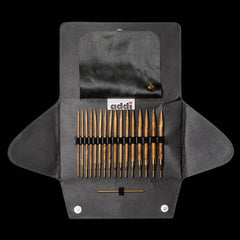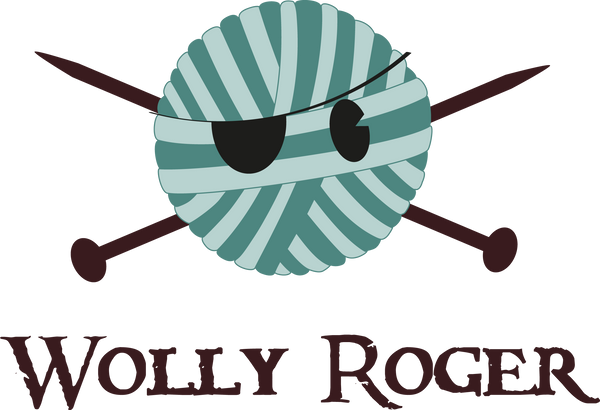05. What if we talked about ethics? Part 1
Share
Hello knitters and cheer up!
Today I invite you to tackle an important topic: ethics. Adjust your boots and pull on your tricorne, as we set sail for an important triptych: environment, animal, and human, of which here is the first part.

Why choose ethical yarns for knitting/crochet?
Because behind a skein or a pair of needles, there is a whole world.
In this article, we'll look at the environmental aspect and address animal welfare and social issues during our next stopover (and it rhymes, too).
There are three types of fibers: natural, artificial, and synthetic. Each has its own unique characteristics.
NATURAL FIBERS
Benefits
Natural fibers are organic, so they are biodegradable and break down quickly.
Some, like flax or hemp, require very few resources and are therefore particularly eco-friendly. These two are also good performers in terms of carbon footprint since they are fibers that are often found in our latitudes.
They are mostly very breathable and thus allow the body to better regulate its temperature.
Disadvantages
In the "I'm extremely water, energy, and pesticide-intensive" category, I present conventional cotton! Cotton cultivation is a scourge for the environment during its cultivation, processing, and transportation (the majority of cotton comes from Asia and Africa).

Wolly Roger's Alternative
By offering yarns made from recycled fibers such as Reborn Wool , Reborn Denim and Studio Linen , we allow you to indulge your passion by lightening the ecological balance sheet of the textile industry while taking care of your wallet since these yarns have an exceptional quality-price ratio.
Wolly Roger also loves organic products and offers 2 GOTS certified sons, Bio Balance and Northern Lights , as well as 3 sons from Ferme Attali , whose breeding is certified organic.
ARTIFICIAL FIBERS
Benefits
First invented as a cheaper, more durable and easy-care silk substitute, viscose ( or rayon) is made from wood cellulose. It is a soft, relatively breathable material that creases little .
Disadvantages
The problem is that the viscose manufacturing process is very energy-intensive and requires a lot of water and wood (1 kg of wood to obtain 400 g of viscose ).
In addition to water waste and deforestation, viscose manufacturing leads to water pollution since the chemicals used are often released into rivers.

Wolly Roger's Alternative
Tencel, also known as lyocell, is a man-made fiber, just like viscose; it has the advantages of the latter without the disadvantages. In fact, its production requires five times less water than cotton, is done in a quasi-closed circuit and with non-toxic solvents. In addition, the forests (pine, eucalyptus or bamboo) from which the wood comes are sustainably managed.
This is why Wolly Roger fell for the Morning Salutation yarn, which is made mainly from Tencel.
SYNTHETIC FIBERS
Benefits
Synthetic fibers are inexpensive to produce and easy to maintain. They are often stretchy, durable, and wrinkle-resistant. They also dry quickly, making them a textile of choice for sports, in particular.
Disadvantages
Synthetic materials are not biodegradable and take several hundred years to decompose.
These materials , created from oil or coal, release micro -plastic particles which land in the oceans and ravage marine ecosystems (the equivalent of 50 billion plastic bottles each year).


Of course, for all these fibers there is also the question of dyeing, which can be a major source of pollution, whether it is chlorine or heavy metals present in the pigments. This is why all the yarns offered by Wolly Roger are certified azo-free or oeko-tex . This means that they are free from products harmful to the environment and the skin.

Furthermore, the wood used in our Addi needles and hooks comes from centuries-old olive trees that no longer bear fruit. These trees were originally intended to be burned, but their life now lives on in the form of these magnificent creative tools.
Likewise, some Cocoknits accessories offered by Wolly Roger are made from bio-plastic, a biodegradable polymer.
We can't change the world, but we want to actively contribute to a more positive knitting/crochet, because kindness doesn't stop at the end of the ball...
Hopla, bis ball!
Jessica
